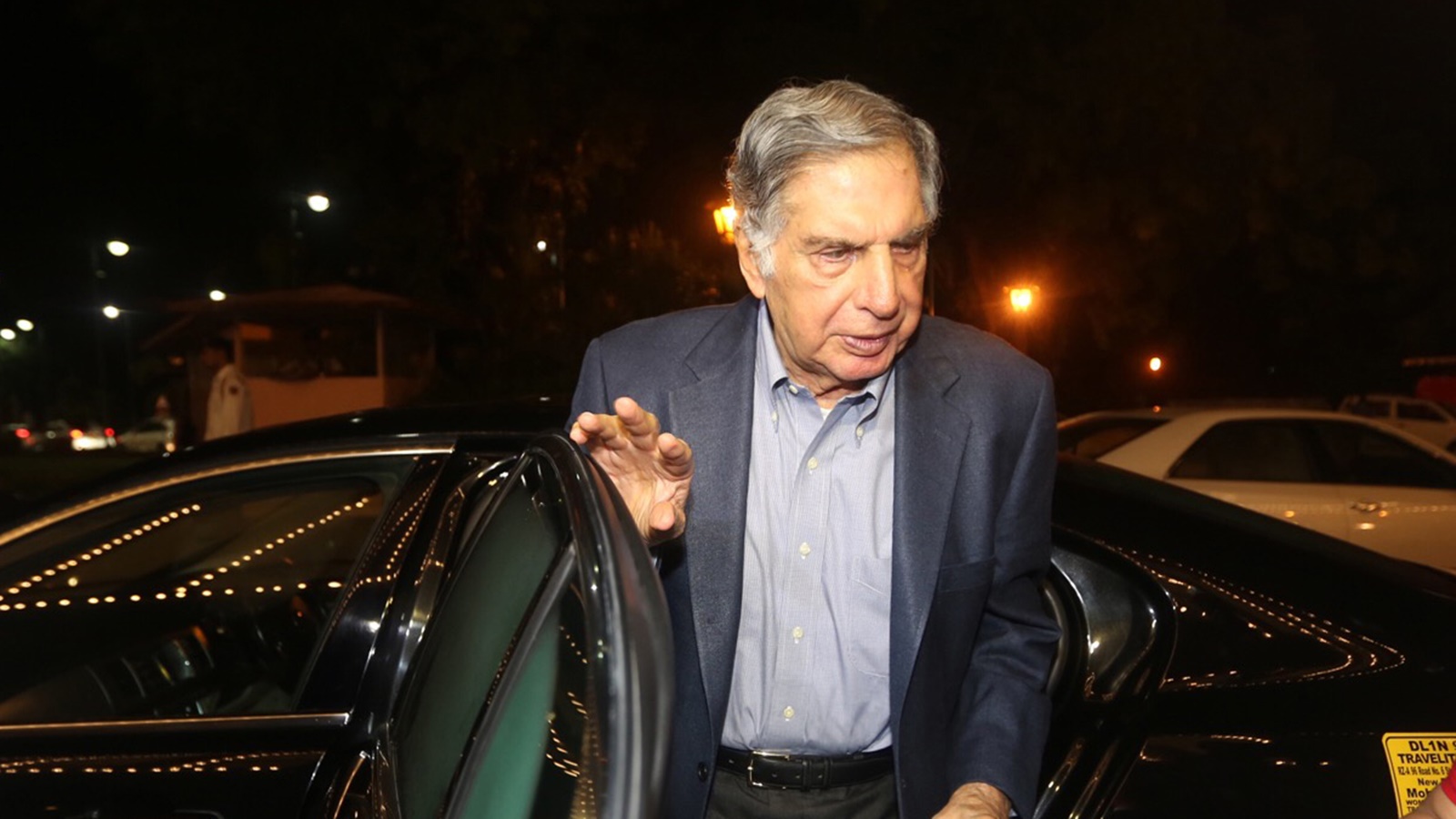
Category: Trending Now
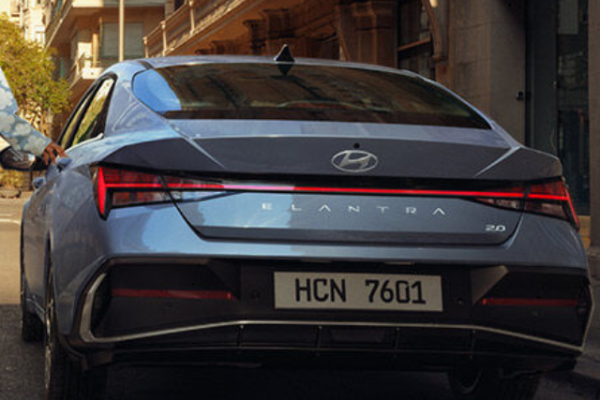
Hyundai India Share Price Debut: Key Insights for Investors
On October 22, 2024, Hyundai India Share made a significant debut on the stock market, capturing the attention of investors due to the company’s solid reputation and ambitious plans for electric vehicles (EVs). The listing was seen as a major step in Hyundai’s growth story in India. Key Listing Details Key Listing DetailsThe Hyundai India share price was listed in the range of ₹1,865 to ₹1,960 per share. Despite the initial optimism, the stock opened at ₹1,934, reflecting mixed market sentiment. While this slight dip caught the attention of cautious investors, the broader outlook remained optimistic due to Hyundai’s strategic approach and growth potential. Why This Listing MattersHyundai Motor India’s market debut is more than just a stock listing; it signals the company’s long-term commitment to India’s growing automotive industry. Hyundai is a major player in the Indian market, with a strong focus on innovation and sustainability. The company’s plan to enhance its presence in the electric vehicle (EV) segment is particularly noteworthy, aligning with global and national trends toward green mobility. Market Sentiment and Investor OutlookThe slight dip in the Hyundai India share price didn’t deter long-term investors. Many believe that this initial fluctuation is a normal part of market behavior. Hyundai’s solid history in India, combined with its evolving portfolio of cars, SUVs, and electric vehicles, gives it a strong edge. The company’s extensive dealer and service network, which exceeds 1,300 dealerships and over 1,500 service centers, reinforces investor confidence. Commitment to Innovation and SustainabilityA key reason why many investors remain bullish on the Hyundai India share price is the company’s proactive investment in future-focused technology. Hyundai’s lineup of feature-rich vehicles, from affordable hatchbacks like the Grand i10 to premium electric models such as the Ioniq 5, highlights its broad market appeal. The company’s increasing emphasis on EV manufacturing and sustainability places it ahead of the curve in a competitive and rapidly evolving automotive market. Long-Term Growth ProspectsHyundai’s presence in the Indian market isn’t just about cars; it’s about creating a reliable and innovative brand that resonates with customers. Its commitment to manufacturing excellence, robust sales infrastructure, and focus on emerging vehicle segments like electric cars, all point to strong growth prospects. Investors are particularly optimistic about Hyundai’s expansion in the electric vehicle market, which is expected to see substantial growth in the coming years. ConclusionHyundai Motor India’s debut on October 22, 2024, may have started with a slight dip in its share price, but the overall sentiment remains positive. The company’s clear focus on enhancing its EV lineup, expanding its dealer network, and leveraging its strong brand image sets it on a path for sustained growth. As Hyundai navigates the evolving market trends and explores new opportunities, the Hyundai India share price is likely to reflect these efforts in the long term. For investors seeking stability and growth potential, Hyundai’s entry into the stock market offers a promising addition to their portfolios.
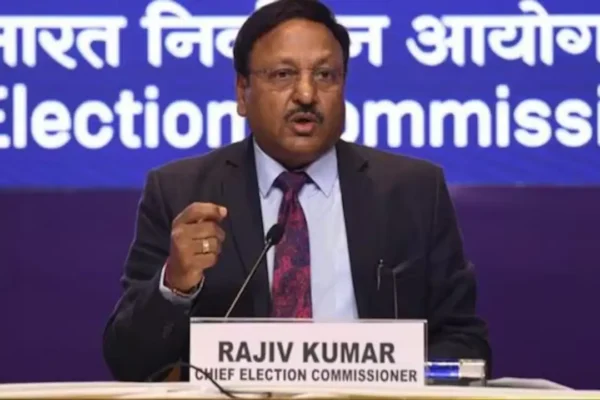
Jharkhand Election Dates 2024: Phases and Key Information
Jharkhand Election Dates 2024 are as follows and will take place in two phases: Key Dates for Nominations The main contest is expected between the ruling Jharkhand Mukti Morcha (JMM) alliance (including Congress and Rashtriya Janata Dal) and the BJP-led National Democratic Alliance (NDA). Other regional parties will also participate. Important Points to Note The elections are crucial for the future political landscape of Jharkhand, with both major alliances vying for power. Make sure to mark your calendar for the voting dates if you are eligible to vote in Jharkhand. Detailed Overview of Jharkhand Assembly Elections 2024 The Political Landscape of Jharkhand Jharkhand has always been a politically dynamic state, with multiple parties influencing the political narrative. The ruling Jharkhand Mukti Morcha (JMM), in alliance with Congress and the Rashtriya Janata Dal (RJD), has been a major force in Jharkhand’s governance. However, the BJP-led National Democratic Alliance (NDA) remains a formidable opponent, with significant influence in rural and urban regions of the state. The 2024 Assembly Elections are anticipated to be highly competitive, with both alliances focusing on key issues such as tribal rights, development, employment, and infrastructure. While the JMM and its allies emphasize social welfare schemes and tribal rights, the NDA is campaigning on the promise of rapid development, economic growth, and improved law and order. Key Issues in the 2024 Elections Election Phases and Voting Details The elections will be held in two phases to ensure smooth conduct and better management of security across the state. The first phase will cover districts that are relatively more challenging in terms of accessibility and security, while the second phase will cover the remaining regions. Voters are advised to check their voter registration details and ensure they are listed in the correct constituency. Polling stations will be set up across the state with adequate facilities to ensure free and fair voting. The Election Commission has also announced special measures to assist elderly and differently-abled voters, ensuring that everyone has the opportunity to cast their vote without difficulties. Major Players in the Election Voter Information and Participation Voter participation is crucial for the success of any election. The Election Commission has been running awareness campaigns to encourage voters to come out in large numbers. In the last assembly elections, voter turnout was around 65%, and this year, authorities are hoping to see an even higher turnout. The state government has also launched several digital initiatives to help voters locate their polling stations and verify their registration details. If you are a resident of Jharkhand, make sure to verify your name on the voter list and carry a valid ID on the day of voting. Security Measures and Free Elections Security is a significant aspect of the election process in Jharkhand, especially in areas affected by Naxalite activities. The Election Commission, in coordination with state police and central paramilitary forces, has made elaborate arrangements to ensure a violence-free election. Special security provisions are being made in vulnerable areas to protect voters and polling personnel. The Commission has also set up vigilance teams to monitor any activities that may violate the model code of conduct. These teams will ensure that voters are not influenced by unfair practices, such as the distribution of money or gifts. What to Expect on Result Day The results will be declared on November 23, 2024, and they will determine the future leadership of Jharkhand for the next five years. Given the competitive nature of the election, the counting day is expected to be filled with excitement, tension, and surprises. Political analysts are predicting a closely fought contest, with both the JMM alliance and the BJP looking strong in their respective strongholds. Stay tuned for updates and ensure that you exercise your right to vote. The future of Jharkhand depends on the active participation of its citizens in the democratic process.
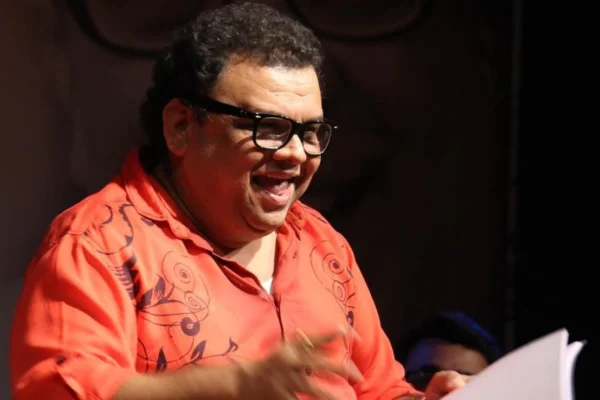
Atul Parchure Passes Away: Raj Thackeray, Kapil Sharma and Others Grieve the Loss of a Comedy Legend
In a world that often takes itself too seriously, Atul Parchure was a delightful exception. He was a man whose laughter was contagious, whose comic timing was impeccable, and whose zest for life could make even the grimmest days brighter. On October 14, 2024, we said our final goodbyes to Atul Parchure. It was a day that left many shocked and saddened, but in remembering his life, we find much to smile about. Let’s dive into his journey, from his early days of comic genius to the battles that tested him, and celebrate the legacy of laughter he left behind. Early Life: A Born Entertainer Born on December 24, 1966, in Mumbai, Atul Parchure grew up in an environment that fostered creativity. From a young age, Atul showed an inclination toward comedy, often cracking jokes that had his family and friends in splits. His teachers would often scold him for making the class laugh at inappropriate times, but even they couldn’t help but chuckle at his antics. Atul always knew he was destined to entertain, and there was no Plan B for him. The Stage That Changed It All Atul began his career in Marathi theatre, which became the foundation for his entry into television and films. He found his first break in the early 90s in Marathi plays that required a comedian who could do more than just tell jokes—someone who could bring characters to life. And Atul was just the guy. His theatre performances were marked by his effortless charm and the way he could turn mundane scenarios into rib-tickling laughter riots. It wasn’t long before his talent caught the eye of television producers. Atul transitioned from theatre to Marathi television, where his comedic talent started gaining him popularity. He became a regular face on various shows, delighting audiences with his expressive face and slapstick comedy. Bollywood: The Rollercoaster Atul’s journey into Bollywood was, as many actors will tell you, a rollercoaster ride. He was no stranger to the industry’s ups and downs. His debut in Hindi films wasn’t marked by grand entry roles, but rather by small parts that allowed him to leave an impression. Movies like Partner (2007) and All the Best (2009) may have featured him in supporting roles, but his screen presence was unforgettable. But the ride wasn’t always easy. Bollywood is a harsh playground, and Atul knew this firsthand. He faced periods of struggle, times when he doubted his choice, and moments when roles just didn’t come. There were films that flopped, scripts that never materialized, and a few painful rejections. But Atul’s resilience was perhaps his greatest asset. He never let the setbacks dim his spirit—he turned every no into a stepping stone, and every setback became fodder for new comedy material. The Comedy Circus: Atul Takes Center Stage In the mid-2000s, Atul Parchure joined Comedy Circus, a turning point in his career. It brought him into the homes of millions of viewers, and he quickly became a favorite. His on-screen chemistry with other comedians was a treat to watch, and his self-deprecating humor became his signature. Who could forget his hilarious exchanges with Kapil Sharma? Atul never shied away from making himself the butt of the joke, and audiences loved him for it. But behind the laughter were personal struggles. Atul was diagnosed with cancer in 2019, a challenge that would take a toll on his health and career. Despite undergoing treatment, he continued to work, determined to keep making people laugh. His fans were unaware of the battle he was fighting behind the scenes, as he made it a point to never let his illness steal the joy he brought to others. A Man of Resilience and Wit Atul Parchure wasn’t just about punchlines and comic relief; he was a man of depth. He was known for his generosity in the industry. Whether it was mentoring young actors or sharing the secrets of comic timing, Atul always believed in passing on his knowledge. He would often joke about the fact that he was like a “sponge for struggles,” absorbing everything and turning it into humor. He had this wonderful gift—to see the funny side of any situation, even his own treatment sessions. The Final Act: A Goodbye That Shocked Us All Atul Parchure passed away on October 14, 2024, leaving behind a legacy of joy, laughter, and unfulfilled dreams. His death came as a shock to many, as Atul had kept his illness largely private. His funeral was attended by the big names of the Marathi and Hindi entertainment world—Raj Thackeray, Shreyas Talpade, Mahesh Manjrekar, and many others who came to pay their respects to a man who lived to make others smile. It was a heart-wrenching day, but even then, the air was filled with stories and laughter. People remembered Atul for the smiles he gave them, for the energy he brought to the sets, and for the jokes that would lighten even the most stressful situations. As his dear friend Kapil Sharma said, “Atul bhai could make even chemotherapy sound funny. He was a fighter and an entertainer till the end.” Remembering Atul: The Legacy of Laughter Atul Parchure’s story is not just one of laughter, but of resilience, strength, and an undying love for his craft. His ability to find humor even in the darkest moments of his life is what made him truly unique. Atul’s journey from the stage to the big screen was a rollercoaster, with exhilarating highs and painful lows. He faced setbacks with a smile, embraced his failures as learning experiences, and celebrated every small success. He taught us that laughter is not just an escape; it is the most powerful tool we have to cope with the hardships of life. He reminded us that it’s okay to laugh at ourselves, that it’s okay to be vulnerable, and that, at the end of the day, we are all human—flawed, struggling, but capable of creating joy. Atul may no longer be with us,…
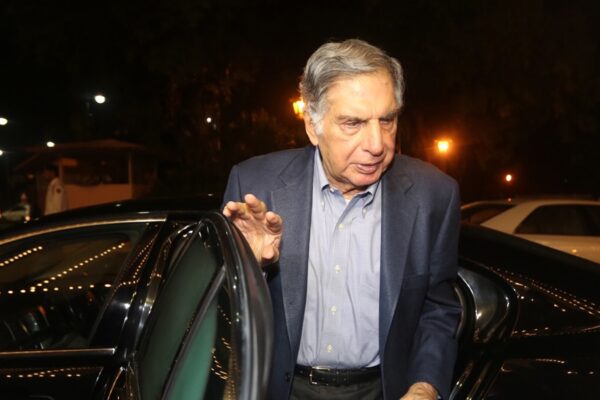
Ratan Tata: The Visionary Leader, Humble Philanthropist, and Animal Lover Who Left a Lasting Legacy
Ratan Tata, the former chairman of Tata Group, is remembered as one of India’s greatest business leaders. Born on December 28, 1937, Ratan Tata took over the leadership of Tata Group in 1991, transforming it into a global powerhouse. His vision for India, his humility, his love for animals, and his dedication to philanthropy made him an icon not just in the corporate world but also in the hearts of millions of people. In this article, we explore Ratan Tata’s most significant achievements, the values he embodied, his love for animals, and how his vision continues to shape India. The Early Life and Rise to Leadership Ratan Tata was born into the prominent Tata family, known for its industrial legacy. Despite his privileged background, Tata’s childhood was far from ideal. His parents separated when he was young, and he was primarily raised by his grandmother, Lady Navajbai Tata. Ratan Tata pursued his education at Cornell University, studying architecture and structural engineering, and later attended the Harvard Business School. He joined Tata Group in 1961, starting his career on the shop floor of Tata Steel, shoveling limestone and handling the blast furnace. This hands-on experience shaped his understanding of the challenges faced by workers and gave him a unique perspective on leadership. He gradually rose through the ranks and, in 1991, succeeded J.R.D. Tata as chairman of Tata Sons, marking the beginning of a new era for the conglomerate. Transforming Tata Group into a Global Powerhouse Under Ratan Tata’s leadership, Tata Group underwent a significant transformation. He focused on modernization, innovation, and expanding the company’s global footprint. Some of his most notable achievements include: Global Acquisitions Ratan Tata led Tata Group through a series of high-profile acquisitions that put the company on the global map. The acquisition of Tetley Tea in 2000, Corus Steel in 2007, and Jaguar Land Rover in 2008 were monumental moves that showcased Tata Group’s ambition and capability. These acquisitions helped establish Tata as a global brand and diversified the company’s portfolio across various sectors, including automotive, steel, and consumer goods. Launch of Tata Nano One of Ratan Tata’s most ambitious projects was the launch of the Tata Nano in 2008, often referred to as the “people’s car.” Priced at around $2,000, the Nano was the world’s cheapest car, aimed at making car ownership accessible to millions of Indian families. Although the Nano did not achieve commercial success, it remains a testament to Tata’s vision of providing affordable mobility to the masses. However, the journey of Tata Nano was not without challenges. Despite the noble intention behind it, the Nano faced significant hurdles. Many people viewed the car as being too cheap, which led to it being perceived as low-quality. Additionally, issues with production facilities, such as the protests over land acquisition in Singur, West Bengal, forced Tata to shift the manufacturing plant to Gujarat. These setbacks, combined with insufficient consumer interest, ultimately led to the Nano’s failure in the market. Ratan Tata often expressed his disappointment that the Nano did not succeed as intended, as he truly believed in its potential to transform transportation for Indian families. Expanding Tata Consultancy Services (TCS) Ratan Tata also played a pivotal role in expanding Tata Consultancy Services (TCS), which became one of the world’s largest IT services companies under his leadership. Today, TCS is a major player in the global IT industry, contributing significantly to India’s reputation as an IT hub. Taj Hotels and Indian Hospitality Ratan Tata’s leadership was instrumental in expanding the Taj Group of Hotels, making it synonymous with luxury and Indian hospitality. The Taj Mahal Palace Hotel in Mumbai, which faced a tragic terrorist attack in 2008, became a symbol of resilience. Tata’s compassionate response to the attack, where he ensured that every affected employee and their family received support, further solidified his image as a caring leader. A Humble Leader with a Heart of Gold Despite his immense success, Ratan Tata remained humble and approachable. He was known for his simplicity, often seen driving himself to work in a Tata car without the fanfare that usually surrounds business tycoons. His humility extended to his interactions with employees, whom he treated with respect and empathy, regardless of their position in the company. Tata’s humility was evident when he visited the families of employees affected by the 26/11 Mumbai attacks. He personally ensured that all those impacted received support, and he visited hospitals to meet the injured. This compassionate approach earned him admiration not just within Tata Group but across the country. Ratan Tata’s Love for Animals Ratan Tata’s love for animals was well-known. He was an advocate for animal welfare and frequently used his influence to support animal rights. Tata was known to rescue stray dogs and provide them with shelter. The headquarters of Tata Group in Mumbai, Bombay House, has a dedicated space for stray dogs, a reflection of Tata’s affection for animals. During the renovation of Bombay House in 2018, Tata ensured that a kennel was built to house the stray dogs that had made the building their home. This act of kindness highlighted his deep empathy for all living beings. He often shared stories and pictures of animals on his social media, using his platform to raise awareness about animal welfare issues. Philanthropy and Vision for India Ratan Tata’s contributions went far beyond the corporate world. He was deeply committed to philanthropy, and under his leadership, Tata Group continued its legacy of giving back to society. Around 66% of Tata Sons is owned by charitable trusts, and the profits are used to fund various initiatives in education, healthcare, and rural development. Education Initiatives Tata was a strong advocate for education and played a key role in establishing institutions like the Tata Institute of Social Sciences (TISS) and the Tata Medical Center in Kolkata. He also contributed to numerous scholarships for Indian students to study abroad, believing that education was the key to India’s progress. Healthcare Contributions Ratan Tata was instrumental in…
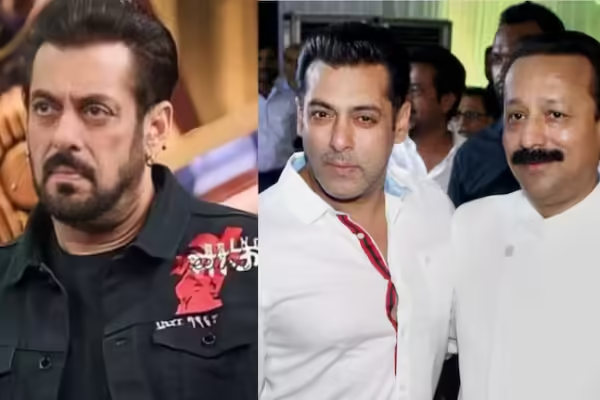
Mumbai in Shock: Baba Siddique Shot Dead – Gang Warfare or Political Vendetta?
Mumbai Under Shock: Baba Siddique Assassinated – Gang Warfare or Political Vendetta? In a shocking incident that has shaken Mumbai, former Maharashtra minister and prominent NCP leader, Baba Siddique, was shot dead by three assailants near his son’s office on October 12th. The attack has left many of us asking: What is happening to our city’s safety? Political figures are questioning the current state of law and order. Organized crime is feared to be on the rise in Maharashtra, and Siddique’s assassination raises critical questions: Are we losing control over our cities? How can we make our neighborhoods safer? A Fractured Law and Order Situation? Deputy Chief Minister Devendra Fadnavis and other political leaders have voiced concerns regarding the safety of public figures in Maharashtra. The police have arrested two suspects, but the third is still on the run. Meanwhile, Maharashtra CM Eknath Shinde has vowed to bring the culprits to justice. But can justice be swift enough to reassure the public? The investigation has uncovered worrying signs of a well-planned attack. Many are now wondering if enough is being done to curb the growing influence of criminal organizations in the city. The fear and insecurity in Mumbai have led many to question: How did things get so far? What kind of measures can prevent such premeditated violence from recurring? Bollywood stars, including Salman Khan, visited Siddique’s family, showing how well-connected Siddique was in both political and entertainment circles. His relationships with high-profile personalities make the incident even more shocking and disheartening. As we see political and public figures react, it makes us wonder: Is anyone truly safe anymore? Celebrity Ties and Rising Crime The investigation into Siddique’s death brings to light a darker aspect of organized crime targeting people with connections to Bollywood. The gang suspected in this case has also been linked to previous threats against prominent figures. This has raised many questions: Is having connections in the entertainment industry now a liability? How can public figures be protected from becoming targets? Baba Siddique was well-known for his close ties to many Bollywood personalities, which put him in the spotlight both socially and politically. These connections, while beneficial during his life, may have drawn the wrong kind of attention from criminal groups. The need for increased protection for public figures has never been more pressing. This incident also highlights the complex relationship between crime and celebrity culture in India. The line between fame and danger seems to be increasingly blurred, and the question remains: How can we ensure that individuals, regardless of their public stature, are safe in their own city? What’s Next for Mumbai’s Security? As investigations continue, Mumbai is left wondering: How do we fix our fractured security environment? The government promises swift action, but will that be enough to curb rising gang activities? Baba Siddique’s death serves as a tragic reminder of the challenges we face in ensuring safety for public figures and even ordinary citizens. What needs to change to make sure such tragedies don’t happen again? The increasing prevalence of such incidents has led to calls for stricter security protocols, particularly for public figures who are at risk. But beyond security measures, there is a broader need for addressing the underlying causes of organized crime. What can be done to dismantle these networks and make our cities safer for everyone? Community engagement is also crucial. People need to feel empowered to report suspicious activity without fear of retribution. The cooperation between law enforcement and citizens is key to restoring a sense of security. Can we create a culture where everyone works together to keep our neighborhoods safe? The Life and Legacy of Baba Siddique Baba Siddique was more than just a politician; he was a community leader who made significant contributions to Mumbai’s social and political landscape. A three-time MLA from Bandra West, Siddique was known for his dedication to public service and his efforts to improve the quality of life in his constituency. He served as a minister in the Maharashtra government, holding important portfolios such as food and civil supplies, and played a crucial role in supporting community development initiatives. Siddique was also known for his close ties to Bollywood, which helped him bridge the gap between politics and entertainment, allowing him to host prominent events that brought people together. His annual Iftar parties were famous for their inclusivity, attracting celebrities, politicians, and citizens alike, showcasing his commitment to fostering unity. Despite his political career’s ups and downs, Siddique remained a respected figure who worked tirelessly for the people of Mumbai. His dedication to community service was evident in the numerous initiatives he supported, from improving local infrastructure to providing aid during times of crisis. During the COVID-19 pandemic, Siddique was actively involved in helping those in need, providing food and medical supplies to affected families. His efforts earned him admiration from both his constituents and peers. He was often seen personally overseeing relief efforts, embodying a hands-on approach to leadership. Siddique’s political journey was marked by his ability to connect with people from all walks of life. Whether it was addressing the concerns of his constituents or interacting with Bollywood celebrities, he had a unique way of making people feel heard and valued. This ability to bridge different communities was one of his greatest strengths. His sudden death is a profound loss for the community, leaving behind a legacy of service, compassion, and a commitment to bridging divides. As Mumbai mourns the loss of a dedicated leader, many are left wondering how his vision for a united and thriving community can be carried forward. Who will step up to continue his work and ensure that his legacy lives on? Have Thoughts on This? Leave your comments below 💬 and share your opinions on how authorities should respond to organized crime threats in Mumbai. What do you think should be the next step to restore safety?

